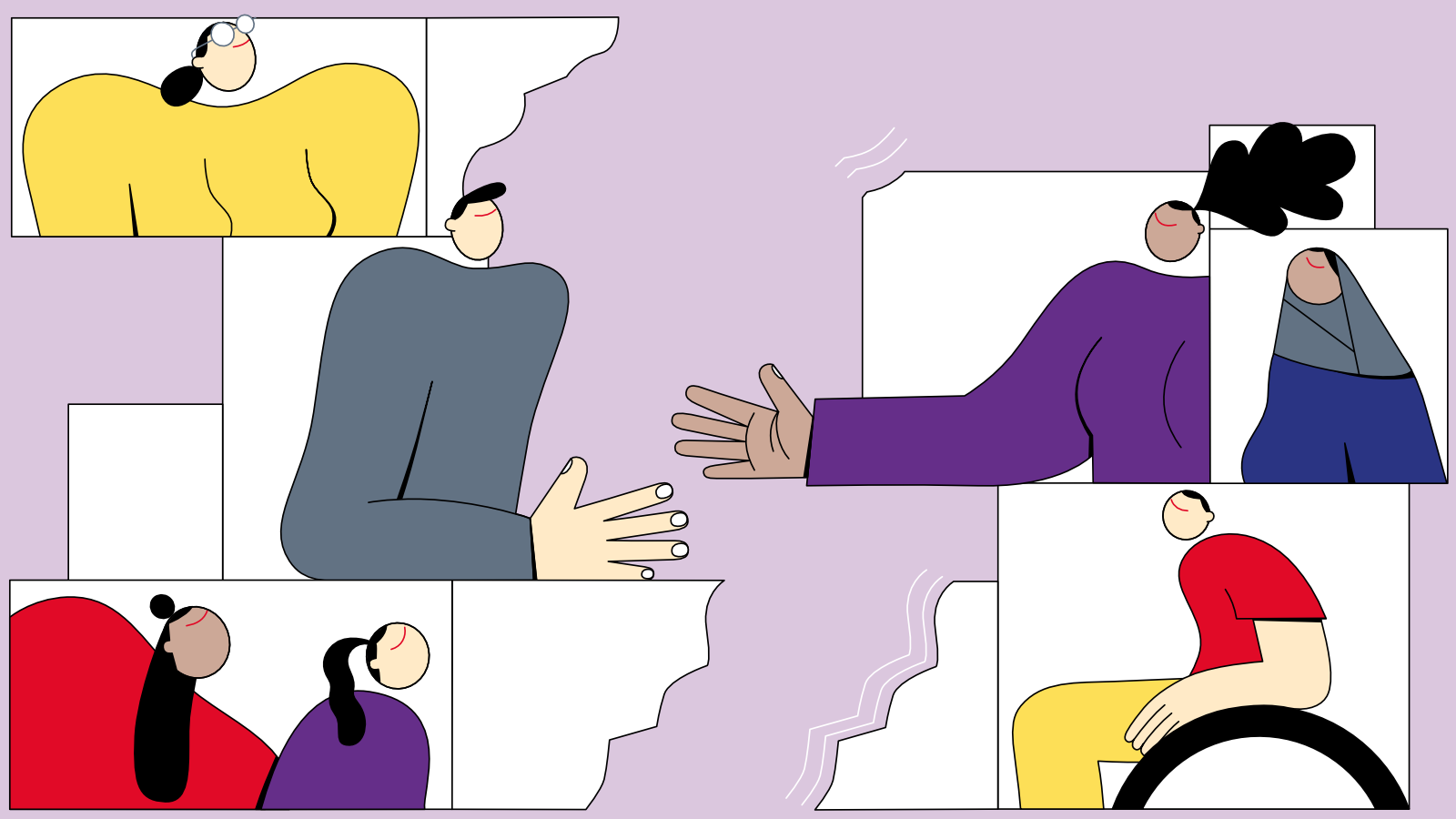Diversity can help create identity: How we can strengthen social cohesion
Acceptance of diversity in Germany is declining, while polarization is on the rise. If we want to protect our society from crises, we must counteract this trend, argues Ottilie Bälz, head of the Global Issues funding area at the Robert Bosch Stiftung.
We live in turbulent times. Crises and wars are happening around us like never before. More and more people feel overwhelmed, exhausted, and anxious. Ongoing demographic change, immigration from other parts of the world, and the more assertive behavior of groups that were once less visible or marginalized are intensifying these feelings in significant parts of the population.
The reaction is often a return to one's own identity as distinct from others or strangers. This goes hand in hand with a narrowing of perspective and can mean that individual social groups are held responsible for complex social problems.
Are we in the midst of a new culture war?
The acceptance of diversity in Germany has declined significantly recently, as shown by the Robert Bosch Stiftung’s “Diversity Barometer” study. While a few years ago, the majority of the population clearly perceived diversity as an enrichment, skeptics are now on the rise. This is not yet cause for alarm. However, there does seem to be a trend toward increasing social polarization. These divisions between different social groups are particularly evident in their acceptance of different sexual orientations, ethnic diversity, and religion. The study thus empirically confirms what public debates have already led us to suspect.
Is this development, which many perceive as a resurgence of the culture wars, self-inflicted? Have we perhaps gone too far with identity politics? Is this why we are losing more and more support for the project of a diverse society – which we have already become and will be even more so in the future?
In his 2019 book, Identity, American political scientist Francis Fukuyama analyzed the reasons for and consequences of identity politics. He describes how, in increasingly fragmented and diversified societies, the political left advocates for disadvantaged groups such as ethnic minorities, women, or the LGBTQI community, while the political right, in turn, advocates for patriotism and the protection of traditional national identity. Traditionally large former social groups, such as the working class, often no longer see their interests as adequately represented. Ultimately, however, all these interest groups want the same thing: recognition, belonging, and dignity. The data from the Diversity Barometer may indicate that Fukuyama's analysis is correct and that we now have to deal with the consequences.
Having your own identity and empathy for others go hand in hand
How can we ensure recognition for each and every individual without devaluing other groups? We must learn to engage with one another and tolerate differences.
The Diversity Barometer also shows that an important prerequisite for this is our capacity for empathy. We can develop this by getting to know people who are very different or by being open to standing in the shoes of others. This also means people cannot use their own feelings as the sole measure and cannot place one group over another or grant it greater rights. For example, advocating for ethnic diversity while rejecting homosexuality is not true acceptance of diversity.
"Diversity is a fact of life and will shape our society even more strongly in the future than it has done so far."
We are fortunate to live in a time and a country where different groups can freely express their concerns and actively demand their rights. Not only are they allowed to do so, they must be expressly supported in doing so. We must accept that this may make other people uncomfortable. Part of peaceful coexistence in society is recognizing that not everyone is an expert on diversity – some people will unknowingly use incorrect terms and, despite their best intentions, put their foot in their mouth or discriminate. This can be painful for those affected and is difficult to avoid entirely. At the same time, individual freedoms and behaviors have their limits when they infringe on the rights of others.
Together, we should seek dialogue with one another and build more knowledge about other social groups. Together, we should strengthen our democracy, defend our values, combat all forms of discrimination, and show intolerant people their boundaries. Together, we should show more appreciation for one another, including for individual achievements in life. And together, we should refrain from generalizing, stereotyping, and prejudging entire population groups. At the Robert Bosch Stiftung, we try to contribute to this through dialogue and formats where people can encounter each other, and by disseminating knowledge and ensuring our public messaging is based on empirical facts.
Of course, it would be naive to believe that this will solve all the problems we face. In order for us as individuals and as a society to not only survive crises but also grow from them, we need more than mutual appreciation. However, valuing diversity is a central foundation for tackling challenges together and shaping the future positively. Whether we like it or not, we probably need each other in our diversity more than we think – especially in these turbulent times.

